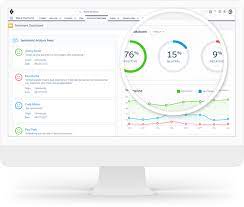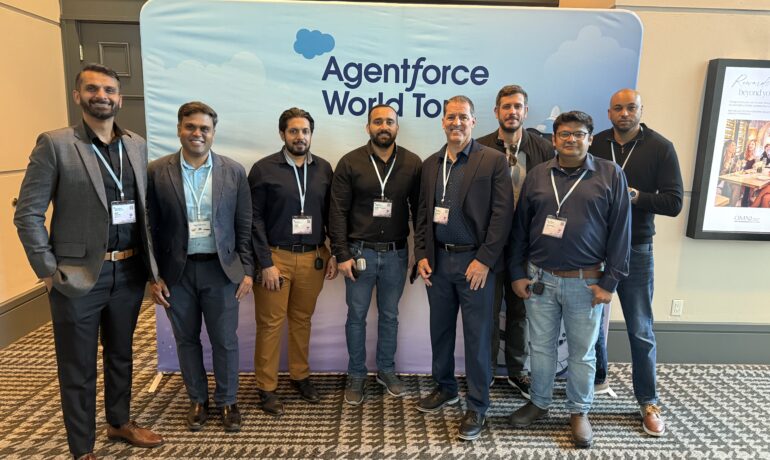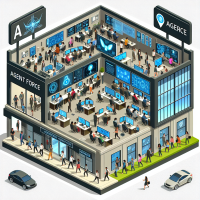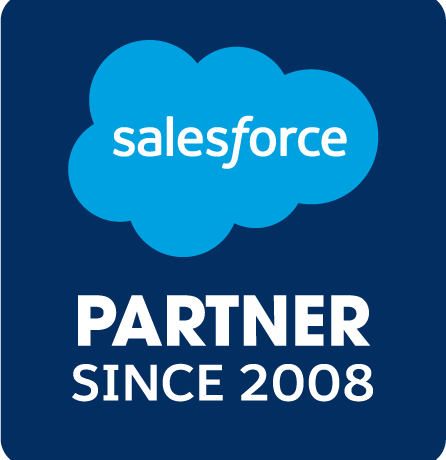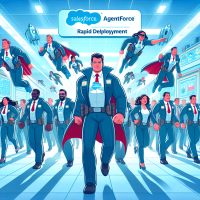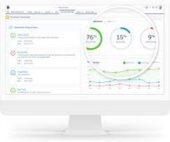AI Goes Mainstream
AI Goes Mainstream: How Small Businesses Are Harnessing Autonomous Agents for Growth Artificial intelligence is no longer just for big corporations. As generative AI tools have become more accessible, small and medium-sized businesses (SMBs) are rapidly adopting AI—with 75% now investing in AI solutions, according to recent data. High-growth SMBs are nearly twice as likely to embrace AI than those struggling to stay afloat. The shift from generative AI to agentic AI—where AI systems autonomously make decisions and take action—is unlocking even greater potential for SMBs. “We’re entering a new era of productivity that will transform businesses of all sizes, especially SMBs,” says Adam Evans, EVP & GM of Salesforce AI, who leads Agentforce, a platform that embeds AI agents into business workflows. “With autonomous AI, small teams can scale like never before.” A serial entrepreneur who sold two AI startups to Salesforce, Evans understands the challenges SMBs face. “Small businesses are always stretched thin. Agentforce gives them a 24/7 digital workforce across sales, service, and marketing—unlocking unlimited capacity.” Here’s how forward-thinking SMBs are using AI to drive growth: 1. Automated Marketing at Scale Many SMBs have tiny (or even one-person) marketing teams. AI-powered agents can:✅ Generate campaign briefs in seconds✅ Identify high-value audience segments✅ Create personalized content and customer journeys✅ Optimize campaigns in real time based on performance “Agentforce doesn’t just set up campaigns—it continuously refines them, ensuring maximum impact,” says Evans. 2. Hyper-Personalized Sales Outreach Generic sales emails don’t cut it anymore. AI agents can now craft bespoke outreach by:📊 Pulling CRM data on past interactions🏢 Analyzing prospect company profiles📑 Applying a business’s best sales playbooks “The AI synthesizes all this to write emails tailored to each lead’s role, industry, and interests,” Evans explains. 3. AI-Powered Shopping Assistants Imagine an AI personal shopper that:🛍️ Guides customers to the perfect product💬 Answers questions via chat (on websites, WhatsApp, etc.)🤝 Upsells and cross-sells intelligently “Agentforce acts as a 24/7 sales rep, helping convert browsers into buyers while freeing up human teams for high-touch relationships,” says Evans. The Bottom Line With AI handling repetitive tasks, SMBs can:✔ Compete with larger players despite smaller teams✔ Deliver enterprise-grade personalization✔ Turn data into actionable insights instantly “The businesses that thrive will be those that deploy AI agents to handle routine work while humans focus on strategy and creativity,” Evans predicts. “This isn’t the future—it’s happening right now.” For SMBs, the message is clear: AI adoption is no longer optional. It’s the key to staying relevant, efficient, and competitive. Like Related Posts Salesforce OEM AppExchange Expanding its reach beyond CRM, Salesforce.com has launched a new service called AppExchange OEM Edition, aimed at non-CRM service providers. Read more The Salesforce Story In Marc Benioff’s own words How did salesforce.com grow from a start up in a rented apartment into the world’s Read more Salesforce Jigsaw Salesforce.com, a prominent figure in cloud computing, has finalized a deal to acquire Jigsaw, a wiki-style business contact database, for Read more Service Cloud with AI-Driven Intelligence Salesforce Enhances Service Cloud with AI-Driven Intelligence Engine Data science and analytics are rapidly becoming standard features in enterprise applications, Read more

